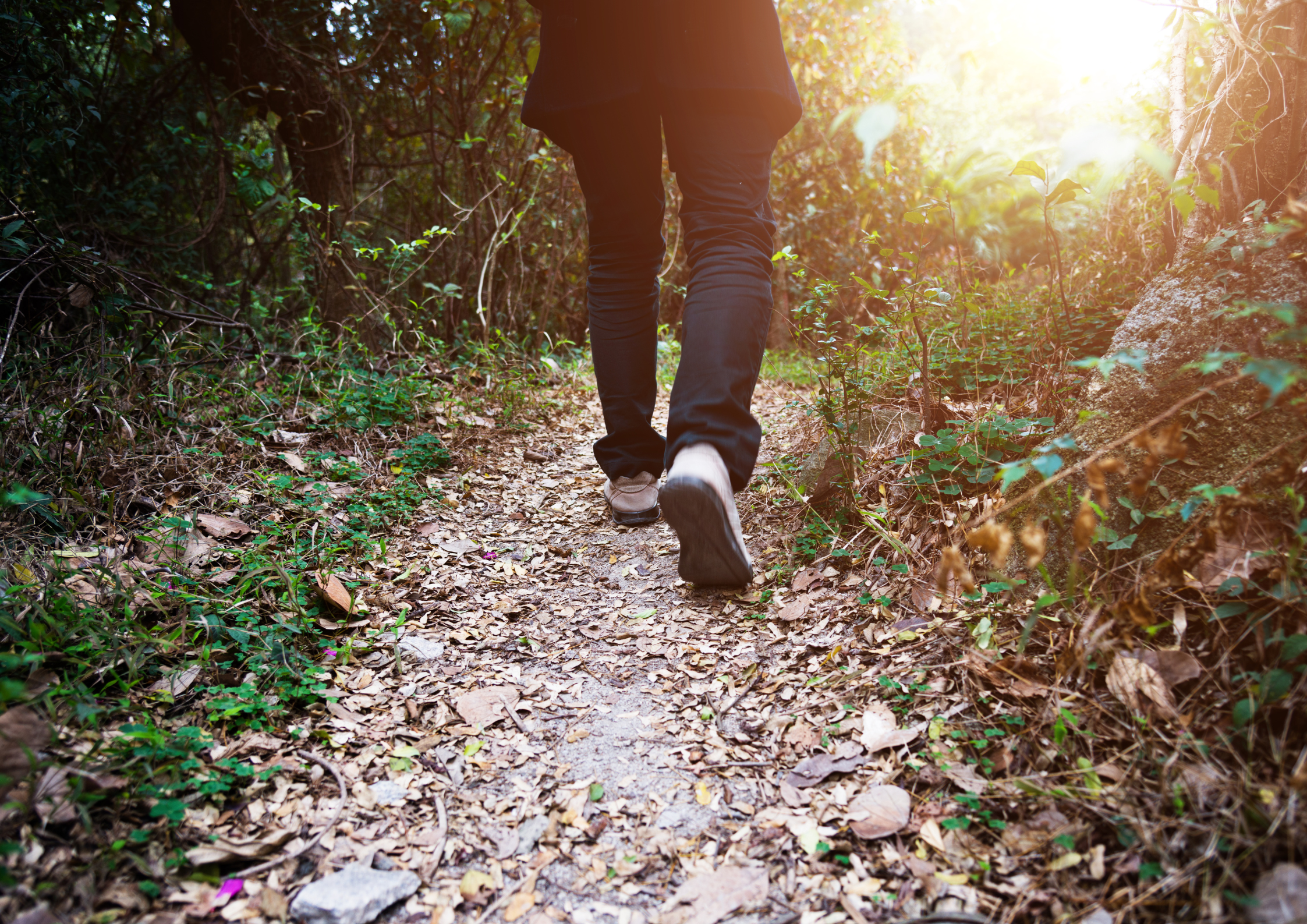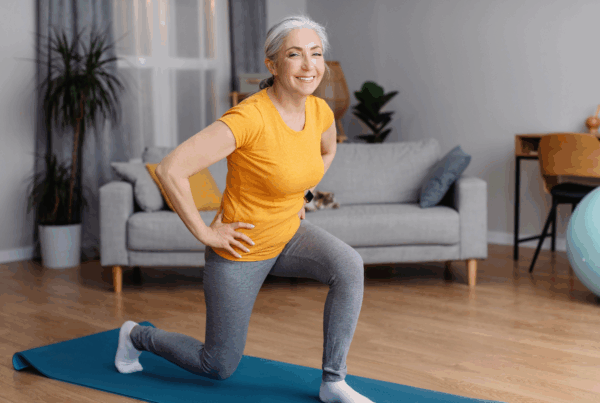Content Note: This article touches on themes of suicide and suicidal ideation, which may be triggering for some readers. If you need help, please know you are not alone:
- In Australia: Support is available from Lifeline (13 11 14), Beyond Blue (1300 22 4636) and the Suicide Call Back Service (1300 659 467).
- In New Zealand: You can call or text 1737 any time to connect with a trained counsellor, or call Lifeline NZ (0800 543 354).
There is no ‘magic bullet’ or ‘quick fix’ when it comes to rehabilitation from complex mental health conditions. Recovery doesn’t happen in a straight line. Instead, it’s about walking alongside someone, sharing the ups and downs and helping them build momentum step by step.
This is Matthew’s story (name changed for privacy). It highlights how exercise physiology can provide structure, purpose, and a pathway forward for someone living with severe mental health challenges.
As Matthew discovered, exercise can be the foundation to rebuild both body and mind.
Where Matthew Started
When Matthew first met his Exercise Physiologist Cara in August 2023, his life had been shaped by years of battling PTSD, depression, and anxiety. No longer able to work, he had withdrawn from much of the outside world. Matthew hadn’t experienced more than 30 minutes of fresh air for nearly a decade!
A typical day involved long hours on the couch, struggling to find motivation for even the smallest tasks like cooking, cleaning, or putting away groceries. Leaving home was overwhelming – Matthew needed a support person just to go to the supermarket. Breathlessness made walking to the letterbox difficult. Pain in his back, knees, hips, and shoulders added another layer of limitation.
Matthew felt emotionally numb, disconnected from his future, and haunted by flashbacks and nightmares. He had experienced suicidal thoughts and attempts*. Despite having a longstanding personal goal of returning to the gym, his perceived ability to attend the gym three times a week or be active for 30 minutes a day was rated zero out of ten.
Taking the First Steps
Cara began with one small, achievable step. Get Matthew on the inside of a gym. Once there Cara knew that Matthew would be motivated by just being in the right environment and that if they could establish a short but regular exercise routine it would create a waterfall effect in other areas of his life. And this is exactly what happened. After that small step, Matthew started drinking more water, going to bed earlier and eating regular breakfasts. That first visit turned into twice-weekly sessions, focused first on mobility and easing Matthew’s pain. Once his knee, hip and back pain started improving, his daily activities were starting to feel easier. As his engagement in the program increased, so too did his motivation to move more at home and he started to independently implement stretching sessions and short walks around his property.
While he had initially delayed entry into the gym due to anxiety, it wasn’t long until Matthew started arriving early to his sessions. These may sound like small changes, but for Matthew, they were huge. It was a glimpse of hope that change was possible.
Building Momentum
Over the following months, the program steadily increased in intensity. Matthew built up to three gym sessions a week with a focus on whole body strength and cardiovascular training. He was able to start tackling exercises that once seemed impossible due to his pain – stair machines, single-leg exercises, and eventually high-intensity interval training. He now had a new goal in mind – returning to jogging.
Alongside the physical progress came meaningful lifestyle changes. He started baking more, gardening, and focusing more on his nutrition. He even adopted a stray cat, adding a sense of purpose and daily responsibility.
While Matthew was consistent with his supervised sessions, he was still struggling with confidence to attend the gym by himself. Cara started to gently challenge this by encouraging him to stay behind at the end of their sessions, or arrive early to complete his warm up by himself. Then came one of his biggest breakthroughs – his first fully independent gym visit!
Fast Forward to Today
Two years later, Matthew’s world looks very different. He no longer gets breathless walking to the letterbox – instead, he can walk for up to 60-minutes in the park. He has been tackling bush walks with inclines and stairs, in new environments, without needing anxiety medication. The outdoors, avoided for almost a decade, is now a place of healing and growth.
Equally powerful are the social shifts – Matthew now greets strangers during his walks, a subtle change that speaks volumes to his progress. Long gone are the days of avoiding eye contact out of fear and anxiety.
Physically, he is stronger, fitter, and more mobile. His pain no longer limits him in daily life or at the gym. He is running intervals at the gym, mastering stair climbs, and continuing to build his endurance. As his capacity increases, so too does his hope for the future. He is finding new ways to manage his mental health, with an emphasis on time in nature to support the process.
Walking the Journey Together
Matthew’s story is a reminder that recovery from PTSD, depression, and anxiety takes patience, consistency, and support. There are no dramatic overnight transformations, but with the right guidance, each small step can lead to life-changing outcomes.
For Matthew, exercise physiology has been about more than just building strength and fitness. It has been about regaining independence, building motivation for everyday activities, and finding confidence in connecting with the world again.
Step by step, session by session, Cara walked the journey with him. And today, Matthew is walking further – and living fuller – than he ever imagined.
* Note: Matthew was receiving support from a counsellor and psychiatrist at this point in time and it was confirmed that the right support structures were in place.
#exercisephysiology #exerciserehab #rehabilitation #lifeinsurance #incomeprotection #ctp #workcover #mobile #mobileexercisephysiology #fatigue #mentalhealth #cancer #musculoskeletal #injury #pain #physio #physiotherapy #Sydney #Brisbane #Melbourne #Adelaide #Auckland #Waikato #BayofPlenty #Wellington #Otago #Christchurch



